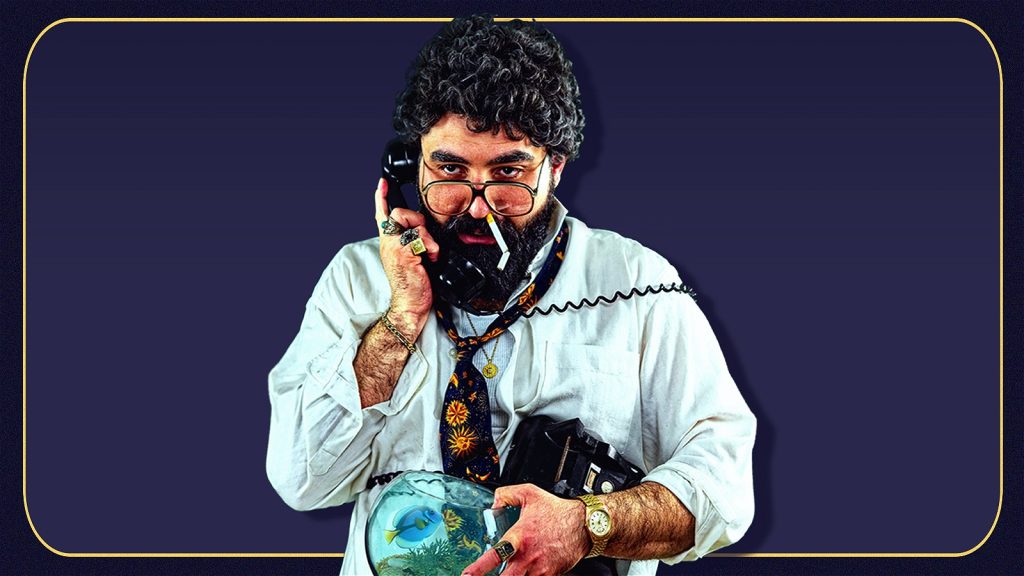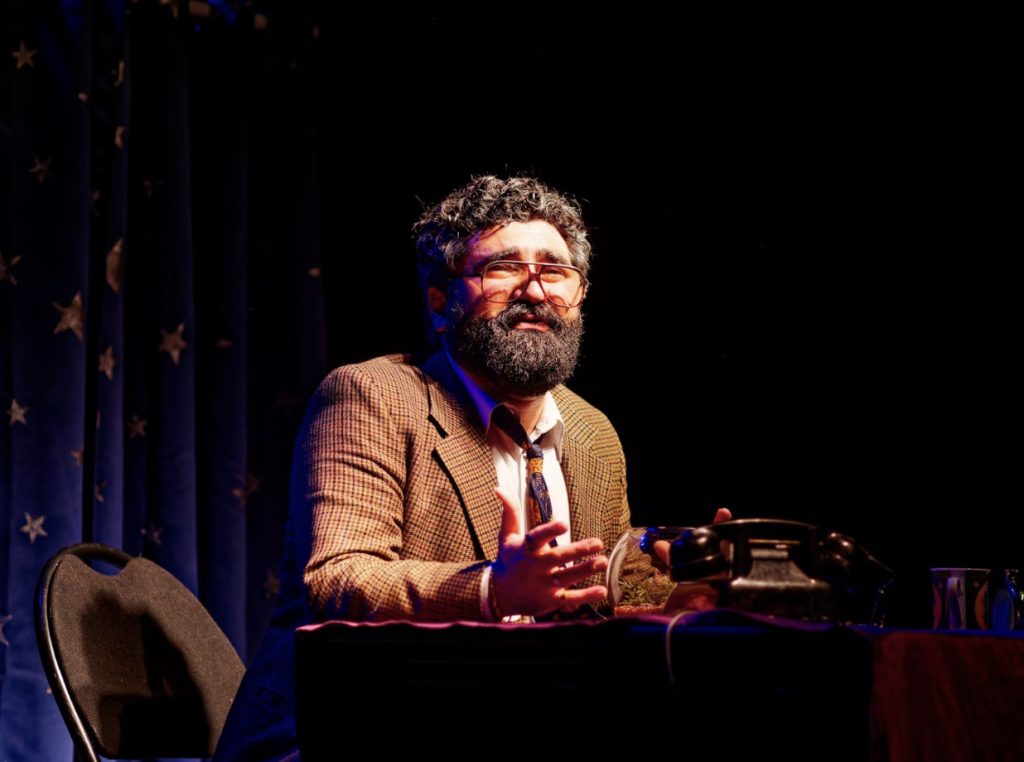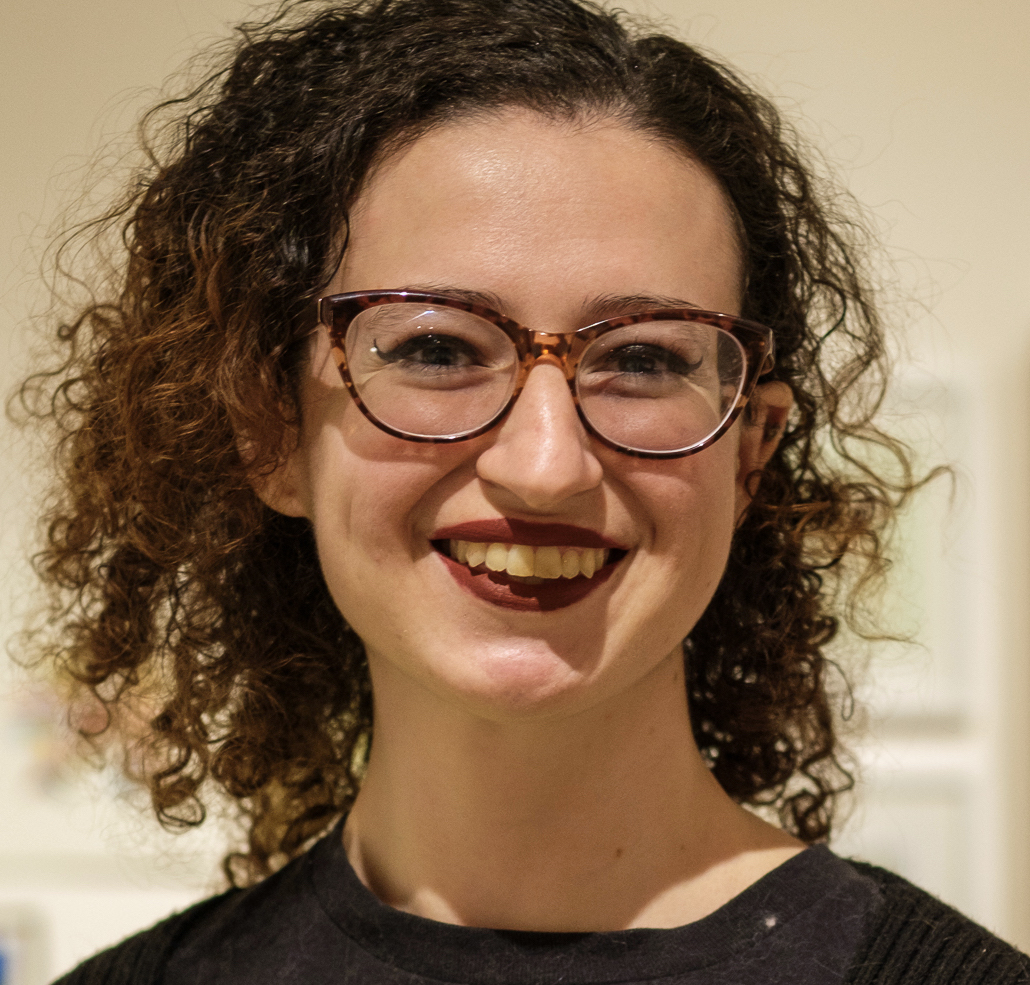Grifting Takes to the Stars: ‘Death of a Starman’ Explores Toxic Masculinity and the Power of Storytelling

Mercury is in retrograde at Kingston Fringe this August as the stars collide in Death of a Starman, starring real life astrologer Zaid Bustami. I had the pleasure of chatting with co-writer and director of the show, Kay Komizara, about toxic masculinity, storytelling, and of course, the stars.
Komizara has been a creator for the last 11 years, having worked in Victoria, Montreal, and is now touring Ontario for Death of a Starman, which will be going to Halifax as well.
For Komizara, even though in today’s world we consume a lot of stories, people don’t necessarily know that they have storytelling capabilities. So they like to tell stories to inspire people to tell their own. Komizara added that from the political messages offered by their work, to the creative ideas and production elements in their craft, they want people to feel: “whoa, I could do that.”
This interview has been edited for clarity and length.
Do you mind giving me a quick overview of Death of a Starman to start off with?
Death of a Starman is a one-man, fast-action, breakneck quality play. It’s about an astrologer who owes the mob a lot of money and has forty-eight hours to pay his debts back. It takes place during Mercury Retrograde, and what may be the last Mercury Retrograde of [the main character] Sal Solomon’s life. He was, in the late-80s, early-90s, a television astrologer on PBS, but in a tragic accident that led to a few deaths, he was cancelled, and has kind of been shot into obscurity. He reads his chart and he sees that the next forty-eight hours will be big for him, maybe he’s going to make his big comeback—but what ends up happening is this series of unfortunate events and it kind of spirals into madness over the course of the play.
Nice. So the production came about a little bit through Montreal improv, and then you became involved later—can you talk about its origin story?
Sure. So I wasn’t there when it started, that credit goes to Peter Malloch and Zaid Bustami… [They] came up with this character, Sal Solomon, who’s this kind of dishevelled astrologer. Zaid himself is actually an astrologer though, and I think Peter comes from a bit more of a skeptical place, so their energies together created this character. Zaid and I met on the improv scene in Montreal and they decided to mount their own show, which was this late night talk show [with] Sal Solomon… Zaid would come to me for little pieces of advice about, “is this monologue working, where should we take the show,” and eventually I suggested that they apply for the Montreal Fringe Festival. And when they got in, they brought me on. I helped them design the story structure and then they needed some writing done. Peter, at that time, was the lead writer in that show. That was last year, Montreal 2023 Fringe, but I’m a cancer survivor and my cancer relapsed last year, so I wasn’t able to be in the project as I wanted to be. But after the run and after my stem cell transplant, I suggested we apply for the Canadian Arts Science Festival, and after that show as well we were taken up by the theatre that we presented at in the Montreal Fringe, and we did a bigger rewrite, and then we’ve gone on to this Fringe tour that we’re doing now.
That’s really cool. So it was a really collaborative and ongoing process?
Yeah, I like to think that our show has some clowning elements. Sal Solomon is a bit of a clown, or almost like a drag king, just like a caricature of masculinity, of toxic masculinity, that the show’s a commentary on the rise of right-wing grifters who sell toxic masculinity to young men in the world. I feel like the show really grows on stage in front of the audience. You can do all the writing and workshopping that you want, but until you’re in front of an audience, you don’t really know the true essence of the character—of the show.

I was wondering if there was anything you wanted audiences to take away from the play?
We definitely wanted to inspire storytelling, and I think seeing a one-man show—well, actually there there’s two actors. There’s a fish in a tank as well, we have to mention him, it’s in his contract. I think to see [one man] on stage—it’s just very impressive and engaging and I think it’s inspiring too, to see just one person tell a whole story through a whole range of characters in an hour. But politically, yes, our play has quite a strong political edge… It comments on this modern media landscape that we have that—perhaps in the past, we had people like Carl Sagan or Mr. Rogers, a more softer, gentler force of masculinity in the media that I would say was a good influence on the world. Now the media has flipped and they prefer to put up people who have this dangerous edge to them and are here to stir the pot, and in a way that’s, I think, detrimental to society…
So that’s one of our goals for the show, and I see theatre as a place that has a lot of radical potential, and it gets people together in a material place, feeling together, it’s all about losing oneself in a collective, and to connect with these people on stage and then you see them after, you see that they’re real people and especially in Fringes, you can say hi to us. And I think this has radical healing potential.
I call our show an Aries show. I do like to tell people that it’s an angry show because Fringe often elevates very beautiful, gentle shows… I want anybody to be able to come to our show and enjoy it, of all ages or backgrounds, but I think it is important to note that there is an angry edge to it.
I like that. That reminds me, I was going to ask you, your sign?
I’m a Leo, I’m a very classic Leo, really like making art, all of these things. We’re definitely using astrology and we’re making fun of ourselves while also enjoying how much we love the magic of it. It’s a really loving kind of satire.
You mentioned that Zaid does astrology, and Peter is maybe slightly more skeptical. Could talk about that a little more—that duality in the show?
Astrology is very much at the centre. I don’t think the show could be the show without astrology. Sal’s character is obsessed with this chart, and many times he’s predicted that he was going to make it big again, or he was going to really save the world, and he has these illusions of grandeur about himself and they’re all coming from his chart. And I don’t want to spoil the show, but the audience is left with the question of whether or not his chart really mattered, whether he gets to where he is at the end of the story because of his own actions and choices, or where he was always destined to be because of where he was born and the stars. I think that ambiguity is really important because that’s the nature of astrology.
Is there anything else we missed or that you’d like to add?
I would say that we’re in Montreal right now till [July] 28th, and then we’re on to Kingston Fringe. We have a little break and then we’re in Halifax at the end of August, and then we’re back in Montreal. We have a big fundraiser that’s being planned right now in Montreal, so there’s a lot of Death of a Starman.
We’ve had great responses, Intermission Magazine did a couple of spots about us and they’re just glowing. And you can find that all on our Linktree and our Instagram.
‘Death of a Starman’ is playing at Kingston Fringe as part of the 2024 Kick & Push Festival from August 1-7 at the Kingston Grand Theatre. For more information and tickets, click here.
